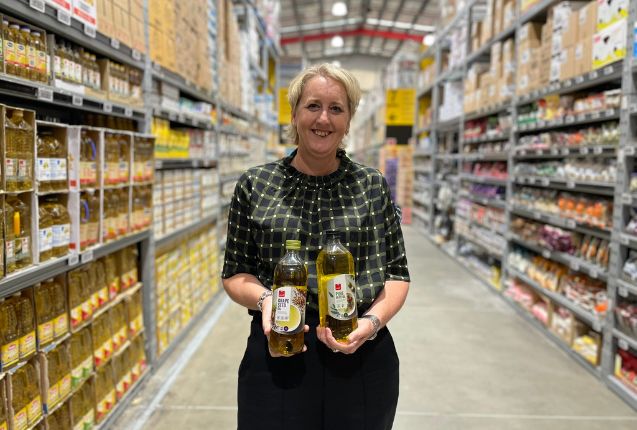Grocery experts are warning consecutive years of extreme weather conditions in Spain and the Mediterranean are creating a global shortage of olive oil.
“We’ve currently got good supply so there’s no need to rush out and top up, but with olive oil being a hugely popular grocery item both here in New Zealand and around the world, we’re already thinking about solutions and alternatives to help customers get the best value” says Jocelyn McCallum, Head of Grocery Food & Frozen at Foodstuffs North Island, the co-operative of local grocers who own and operate the North Island’s New World, PAK’nSAVE and Four Square stores.
The world’s largest producer of olive oil is Spain and extreme weather has damaged the harvests of olives for a second year. Global production of olive oil is expected to fall and be short of global demand.
McCallum says: “Olive oil represents roughly 40-50% of our total oil sales so it’s very popular with New Zealanders. Over the last six months, we’ve seen supplier olive oil prices increase by 50-60% and as global demand outstrips supply, we can expect supply prices to continue to increase. Our experts are predicting we’re near the ceiling of the likely increases, however until growers get better conditions and supply levels improve, it’s likely supply prices will remain higher than usual.”
Foodstuffs has a good supply of olive oil but are raising the flag early to give customers the opportunity to make slicker decisions when it comes to choosing oil products by considering alternative options.
With a wide range of oils to choose from, McCallum suggests being clear on what you need: “When you’re choosing your cooking oil, it’s a good idea to think about how you’re going to use the product. Is it going to be for salad dressing and dips, cooking at high heat, or a general all-rounder.”
For cold dishes like salad dressings and dips, vegetable oils such as canola and regular sunflower will contribute less flavour than olive oil but can bring the same body and texture.
If cooking at high heat, be mindful of the smoke point of the oil, the point when it reaches its burning point and stops shimmering and starts smoking. Refined oils such as sunflower, canola and peanut all have high smoke points, making them best for high-heat cooking.
McCallum says: “If you’re after an all-rounder, canola oil could be a good option due to its versatility and affordability. With a subtle flavour and high smoke point, it can be used on the BBQ, wok or fry pan and has low levels of saturated fat. It’s also around $10 cheaper per litre than olive oil!”
“If you just love your olive oil and can’t do without it, consider using a spray bottle to limit how much you use so you get maximum bang for your buck” – she added.



